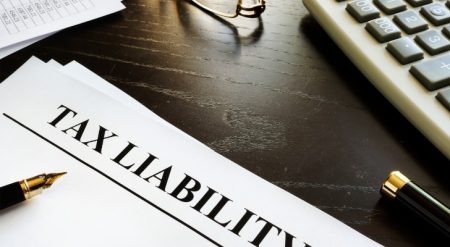An 83(b) election lets individuals who receive restricted stock or stock options pay taxes on the value at the time of grant, rather than when the shares vest. This election is only available within 30 days of receiving the stock and can affect the amount and timing of taxes owed. Understanding how the 83(b) election works can influence both short-term tax liabilities and long-term gains, especially for startup founders and early employees.
A financial advisor can help you evaluate different tax strategies for your investment portfolio.
What Is an 83(b) Election?
An 83(b) election is a provision under the Internal Revenue Code that allows recipients of restricted stock to accelerate their tax liability to the time of the stock grant, rather than waiting until the stock vests. It applies to equity that is subject to a substantial risk of forfeiture. This typically means stock that could be lost if the recipient leaves the company before a set period or performance condition is met.
By filing an 83(b) election, the taxpayer elects to include the fair market value of the restricted shares as ordinary income in the year of the grant. This approach can be beneficial if the stock is expected to increase in value. That is because future appreciation may qualify as long-term capital gains rather than being taxed as ordinary income upon vesting. If the stock never vests or declines in value, however, any taxes paid upfront are non-refundable.
83(b) Election Deadline
The election must be filed with the IRS within 30 calendar days of the grant date. A copy is also typically provided to the employer. The taxpayer retains another copy for their own records. This decision is irrevocable once made so it requires a careful assessment of both tax implications and equity risk.
An 83(b) election generally applies to early exercise stock options, where an employee exercises unvested options and receives restricted stock. For example, suppose you join a startup and receive the right to purchase 10,000 shares at $1 per share. The shares vest over four years. You decide to early exercise all the options upfront and pay $10,000 total. At the time of exercise, the fair market value of the shares is also $1, so there is no taxable income. You file an 83(b) election within 30 days, locking in zero income tax on the grant. Over time, the company grows, and four years later, the shares are fully vested and worth $5 each. If you sell at that point, the entire $49,000 gain is taxed as a long-term capital gain, rather than ordinary income. Failing to file an 83(b) election means you’ll be taxed when your stock vests, based on its fair market value at that time. As the company grows, the stock’s value may increase, leading to higher taxable income upon vesting. This income is taxed as ordinary income, which often carries higher rates than capital gains. Additionally, you’ll owe taxes at each vesting event, potentially without receiving cash to cover these liabilities. The company must also handle tax withholding and reporting, adding administrative complexity. In contrast, filing an 83(b) election allows you to pay taxes upfront, potentially at a lower valuation. Future gains may be taxed at the lower capital gains rate. Until late 2024, there was no official 83(b) election form. You were previously required to complete a written statement including required information. However, the IRS released a form specifically devoted to 83(b) elections—Form 15620—in 2024. It simplifies the process by including all required information in a standardized format. To complete the form, start by entering your full name, address, and Social Security number. You’ll also state the date the property was transferred and describe the shares, including quantity and class. The form also requires you to identify the taxable year in which the election is being made. Once completed, sign and date the form. Make three copies—one for the IRS, one for your employer, and one for your personal records. Use certified mail if you want proof of delivery. Mail the IRS copy to the IRS Service Center where you file your annual return. Do this within 30 days of the stock grant or early exercise. While electronic filing is not currently supported, the election can be included with your tax return. Filing an 83(b) election involves weighing the potential tax advantages against the risk of paying tax on equity that may not be realized. An 83(b) election offers a way to shift the timing of tax recognition on equity compensation. This can potentially reduce overall tax exposure if the value of the shares rises over time. The benefits hinge on future outcomes, including vesting and company performance. Potential drawbacks center around upfront risk and a fixed deadline. Whether the election makes sense depends on the terms of the equity grant and the recipient’s expectations for the stock’s trajectory. Photo credit: ©iStock.com/GeorgeRudy, ©iStock.com/stefanamer, ©iStock.com/Deagreez Read the full article hereHow an 83(b) Election Works for Stock Options
What Happens If You Don’t Make an 83(b) Election?

How to Make an 83(b) Election
Pros and Cons of an 83(b) Election
Advantages
Drawbacks
Bottom Line

Tax PlanningTips
Subscribe to our newsletter to get the latest updates directly to your inbox












